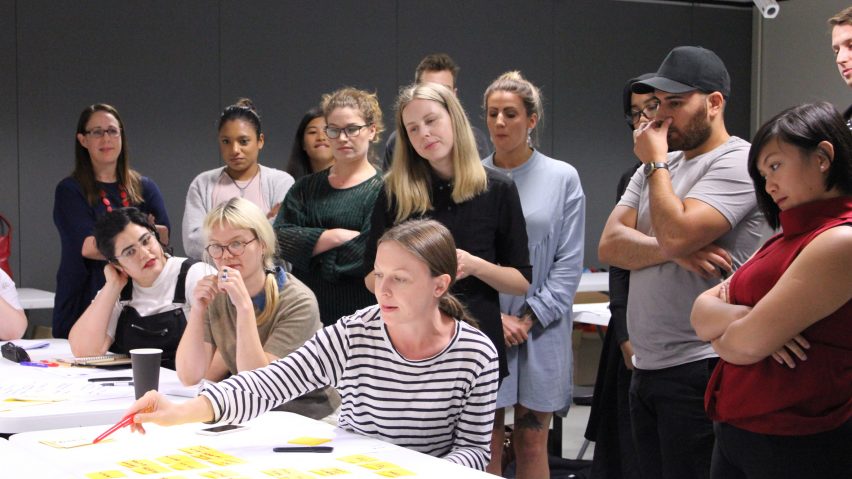
Directory of female creatives aims to tackle the "stone-aged" under-representation of women in design
Australian studio Double Days has created a publicly editable directory of women in design that can be used by conference organisers to source female speakers for panel discussions.
Published on Google Docs by Double Days founder Bonnie Abbott, the list is comprised of names and short descriptions of women recommended by peers and admirers for being "inspiring leaders, agents of change, or community advocates".
Titled A Reparative List For Your Male-Dominated Design Conference, the names are organised by country and range from graduates to vice presidents of companies. The list is publicly editable and users are encouraged to contribute individuals that will be moderated by Abbott.
Abbott's directory began as a short list of female colleagues that she admired, but after sharing the list with her network on Twitter, it started to gain traction.
"It's grown far beyond what I thought was possible, which tells me it really is an international issue," Abbott, a Melbourne-based designer, writer and researcher, told Dezeen.
"It has also been an interesting study on democratic knowledge building — I don't want to control it too much, and the point is to celebrate a diversity of voice, approach and knowledge, so I am watching the list being contributed to in a variety of styles and attitudes."
Abbott, who hopes to develop the list into a larger written piece about diversity in design conferences, believes that an unimaginative approach to conference formats is to blame for the current lack of diversity at events.
"It would seem some event organisers rely on what has been said and done before," Abbott told Dezeen. "They don't have to take risks with programming, so we get the same safe names which, usually, are not women, nor anyone with a challenging, new or alternative perspective."
"If your event is at night or lacks support for parents, emphasises alcohol-fuelled afterparties, has an insufficient code of conduct, or promotes the notion of the lone design genius, you may have trouble booking diverse and interesting talent," she continued.
"This isn't just exclusionary, it's a sign that your event isn't accurately representing the breadth and power of design with any real relevancy."
The Reparative List follows in the footsteps of initiatives such as The Pledge, an action created in January 2015 by London-based development economist Owen Barber, which encourages men to pledge not to take part in all-male panels. Since its creation, The Pledge has garnered signatures from over 1,200 people across a diverse range of industries, who have sworn to adopt the practice.
Supporters include a number of names from the design and construction industries, including property developer Martyn Evans – who is also deputy chair of the London Festival of Architecture.
"I don't think this is a controversial campaign," Evans told Dezeen. "It's just common sense. I work in an end of the business (property development) that is particularly white and male, at least in the senior echelons, and so it just makes absolute sense that where this issue can be pointed out, it should be."
"When it's all men, it just perpetuates the idea that men speak… and others listen. It's stone-aged. And it's not just about the technicality of gender equality either, because men and women are different. Balanced panels, balanced meetings, balanced companies just feel better and behave better - there's more nuance, a greater diversity of tone as well as of voice."
The issue of gender inequality in design has been a much-discussed topic of late. Industry studies have found a huge disparity in pay, as well problems relating to long hours and childcare.
Architect David Adjaye recently said he was "embarrassed as a male" that women still need to fight for gender equality, while Denise Scott Brown petitioned to be recognised for the joint achievements of herself and husband Robert Venturi.
Most recently, Sheela Maini Søgaard, the only woman among the 12 partners at BIG, had to defend the firm's diversity after founder Bjarke Ingels posted a photograph on Instagram of all 12 partners, captioned "BIG BOYS&GIRL" – highlighting the gender imbalance at partner level.
Meanwhile, a number of recent exhibitions have asked women to produce a certain kind of work because of their sex, arguably perpetuating gender stereotypes. Furniture brand Lago worked with eight prominent Italian women to create a series of rooms in "an ode to women's kindness", while seven female designers were asked by Italian metal brand De Castelli to create metal furniture with "strong emotional allure".